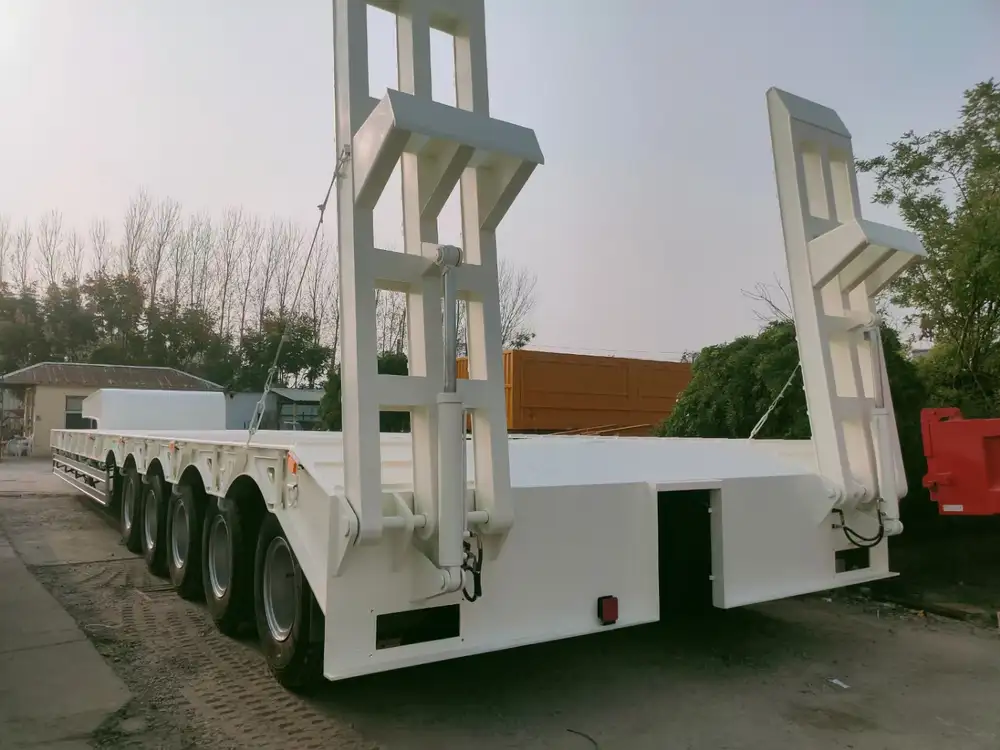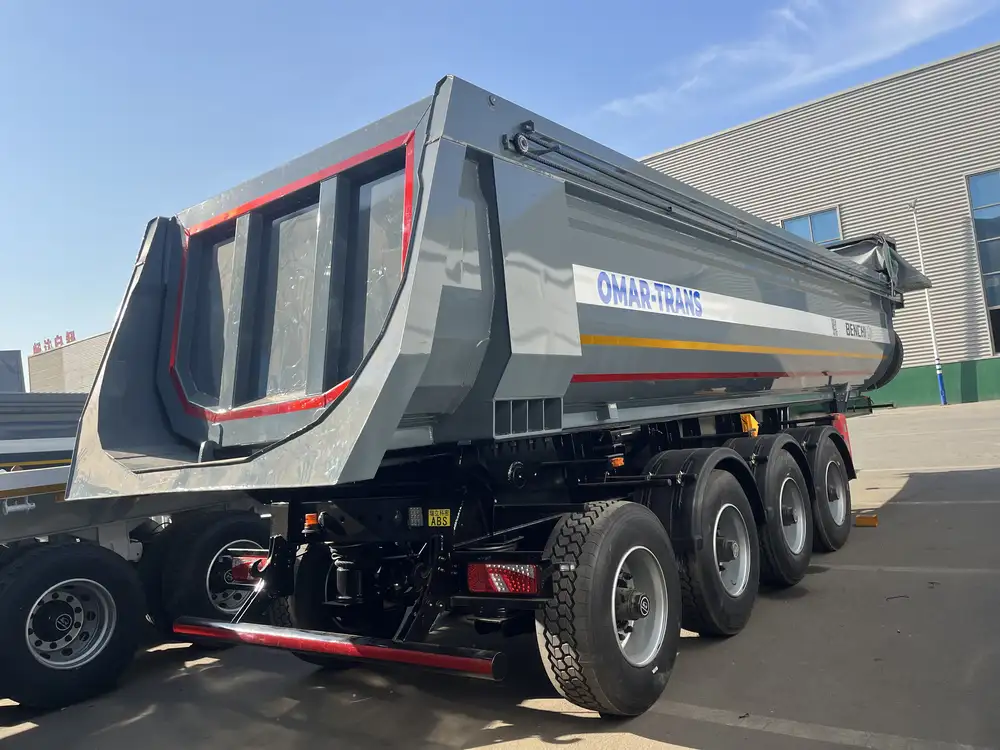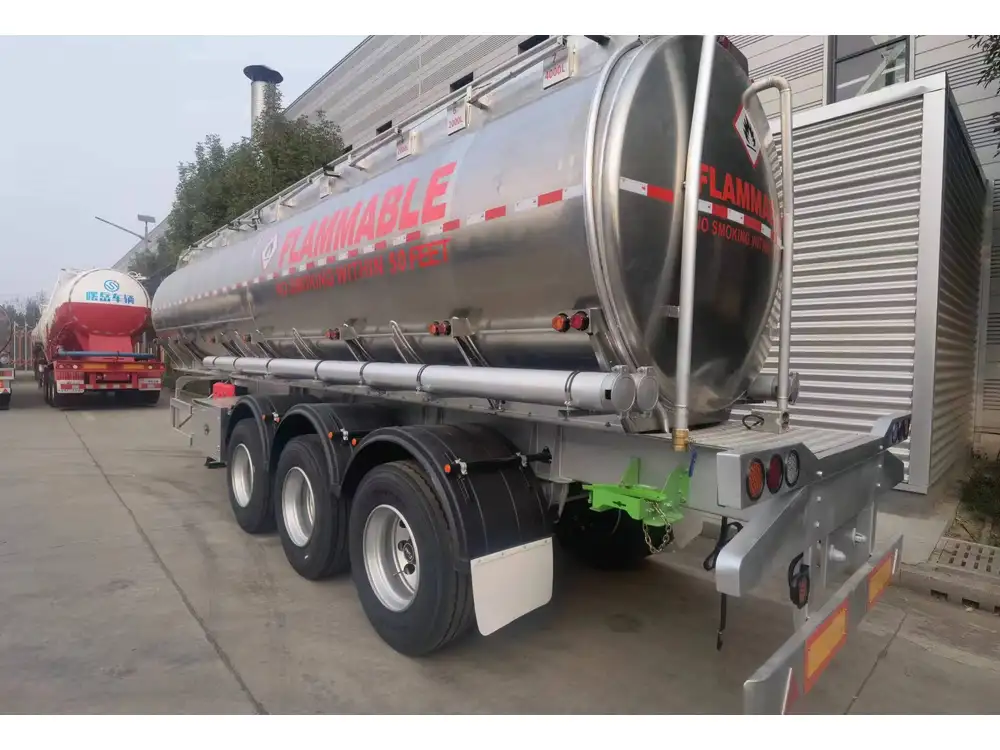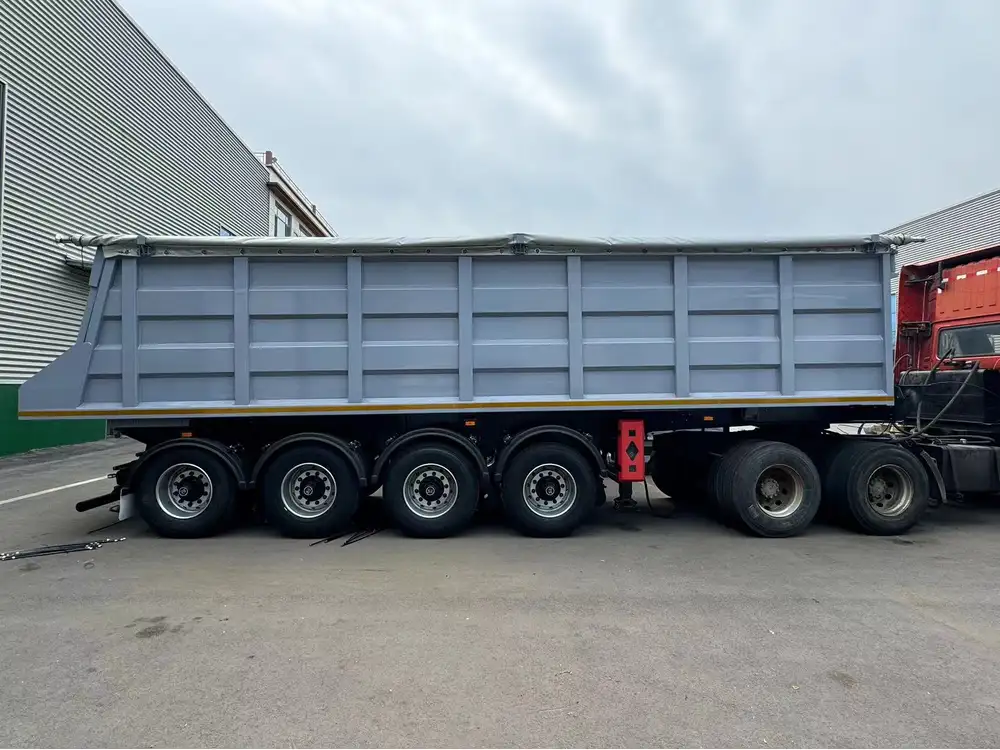When it comes to operating a dump trailer, the heart of your trailer’s functionality lies within its battery. The right battery not only powers the hydraulic system necessary for lifting and dumping loads but also ensures reliability during your operations. Selecting the right battery can significantly impact the performance and longevity of your dump trailer. In this guide, we will delve into the critical aspects of choosing the appropriate battery, covering types, specifications, and maintenance tips to keep your trailer performing at its best.
Understanding Your Dump Trailer’s Battery Needs
Before you head out to purchase a battery for your dump trailer, it’s essential to understand your specific needs. Various factors come into play, including the weight of the trailer, frequency of use, and whether you require a deep cycle or starting battery. A detailed analysis can help you make an informed decision.
Key Factors to Consider
| Factor | Description |
|---|---|
| Trailer Weight | Heavier trailers may require batteries with higher capacity. |
| Hydraulic System | Evaluate the hydraulic pump specifications and power needs. |
| Frequency of Use | Regular usage increases the demand for a robust battery life. |
| Power Requirements | Understand the voltage and amperage your trailer requires. |

Types of Batteries for Dump Trailers
When selecting a battery, you’ll encounter various options. Each type has unique features tailored to specific applications. Here are the most common types of batteries used in dump trailers:
Lead-Acid Batteries
- Traditional choice for many vehicles and trailers.
- Available in two types:
- Flooded Lead-Acid: Economical but require regular maintenance and monitoring.
- AGM (Absorbent Glass Mat): More efficient, maintenance-free, and resistant to vibrations.
Lithium-Ion Batteries
- Emerging as a popular choice due to their lightweight and longer lifespan.
- Capable of discharging at higher rates.
- Typically more expensive, but they offer in-depth energy management and faster charging.
Deep Cycle Batteries
- Ideal for applications where the battery will be regularly discharged and recharged.
- They provide a steady amount of current over longer periods, making them suitable for hydraulic systems.
Starting Batteries
- Primarily designed to provide a short burst of energy to start engines.
- Not typically recommended for dump trailers since they are more suited for vehicles that require short, high-current bursts.
Choosing the Right Battery Voltage
Batteries for dump trailers commonly come in 12V configurations, though 24V systems can be utilized for larger, more demanding applications. Depending on your hydraulic system’s specifications, it’s crucial to match your battery’s voltage to ensure optimal functionality.
Battery Specifications You Cannot Ignore
Once you’ve filtered your options down by battery type, focus on specific specifications that can greatly affect performance and reliability. Here are the primary specifications to evaluate:

Capacity (Ah)
Measured in amp-hours (Ah), battery capacity indicates how long a battery can deliver a specified current before needing a recharge. A dump trailer battery typically ranges from 75Ah to 200Ah, depending on the usage.
Cranking Amps (CCA & CA)
- Cold Cranking Amps (CCA): Essential for starting engines in cold temperatures. A higher CCA indicates better performance in low temperatures.
- Cranking Amps (CA): Indicates starting power at a more moderate temperature. For operations where fluid mechanics come into play, high CA is preferable.
Dimensions and Terminal Configuration
Verify the dimensions to ensure the battery fits within your dump trailer. The terminal configuration also matters because improper connections can lead to operational failures or safety hazards.

Maintenance Tips for Dump Trailer Batteries
Maintenance is key to prolonging the lifespan of your dump trailer battery. Adhering to the following practices can help you achieve optimal performance:
Regular Inspection
- Visual Checks: Inspect for corrosion on terminals or leaks.
- Cleaning: Keep terminals clean and free from debris.
- Connections: Ensure all connections are secure.
Charge Cycles
- Avoid deep discharges whenever possible. This practice can reduce battery lifespan, particularly with lead-acid batteries.
- Aim to charge your battery after each use, especially if using a deep cycle battery.

Storage Practices
- If your dump trailer will not be used for an extended period, disconnect the battery and store it in a cool, dry place.
- Periodically check the charge and recharge if necessary to prevent sulfation.
Seasonal Preparedness
- In winter months, consider using battery heaters or insulators. This is vital for lead-acid batteries, which can lose capacity in colder conditions.
- Monitor battery performance in varied environmental conditions to ensure reliable operation.
Finding the Right Battery for Your Requirements
After initial research and contemplation, the next step is evaluating where to obtain your battery and what brands to consider. Here are some practical steps:

Consult Manufacturer Guidelines
Manufacturers of dump trailers usually provide recommendations for the type and specifications of batteries suitable for their models. Always check the user manual or consult customer support for insights.
Compare Brands and Specs
| Brand | Voltage | Ah Rating | CCA | Price Range |
|---|---|---|---|---|
| Brand A | 12V | 100Ah | 800 | $100-$150 |
| Brand B | 12V | 150Ah | 900 | $150-$200 |
| Brand C | 12V | 200Ah | 1000 | $200-$300 |
Explore Online and Local Retailers
Visiting local automotive supply stores or searching online can yield various options. Look for stores renowned for customer service, warranty offers, and return policies. Customer reviews can provide insight into performance and durability.

Troubleshooting Common Battery Problems in Dump Trailers
In case of trouble with your dump trailer battery, here’s a structured approach to troubleshooting common issues that may arise:
Battery Won’t Hold Charge
- Possible Causes: Old age, sulfation, or internal short circuit.
- Solutions: Test the battery with a multimeter; if below specification, get it tested or replaced.
Dim Lights or Slow Operation
- Possible Causes: Insufficient power due to a weak battery or inadequate connections.
- Solutions: Inspect the battery’s overall health and check all connections for cleanliness and tightness.

Overheating
- Possible Causes: Excessive load, overcharging, or malfunctioning components.
- Solutions: Decrease load and inspect the charging system; consider consulting a professional if needed.
Conclusion
Choosing the right battery for your dump trailer is critical in ensuring the longevity and effectiveness of your operations. By understanding the various types of batteries, specific requirements, maintenance practices, and troubleshooting common issues, you position yourself for success. An informed choice safeguards your investment and maxes out performance efficiency; it’s not merely about power—it’s about reliability on every job site.
By aligning your battery selection process with the careful consideration outlined in this guide, you will not only enhance the operational capacity of your dump trailer but also ensure smooth, productive workdays ahead. When in doubt, remember: a well-maintained trailer and a robust battery go hand in hand.



